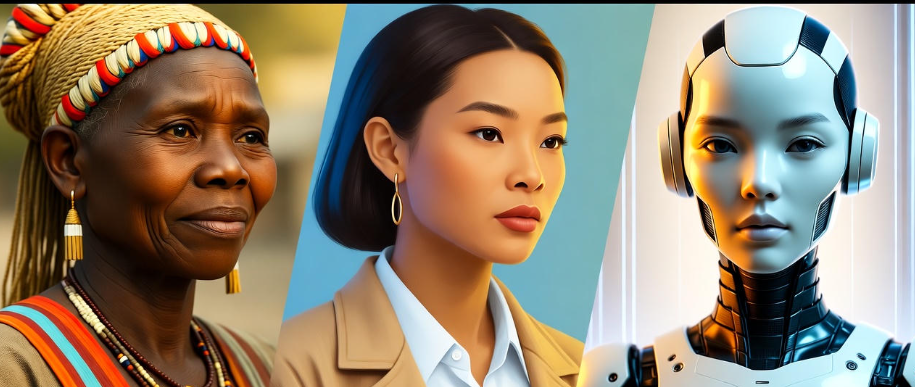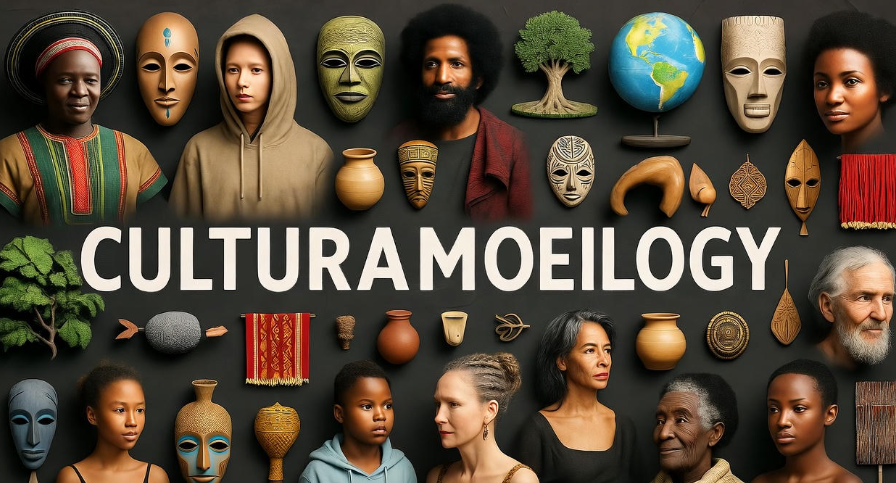If you’ve ever stopped to wonder why people live, dress, eat, or think differently across the world — congratulations, you’ve already stepped into the field of Cultural Anthropology without even realizing it. This branch of anthropology digs deep into how humans create meaning, connect with each other, and build societies that reflect their values, dreams, and fears. But in today’s fast-paced, digital, AI-driven world, does it still matter?
Absolutely. And here’s why.
Understanding Humanity Beyond Borders 🌐
One of the biggest gifts of cultural anthropology is that it teaches us to see beyond our own world. When an anthropologist studies a tribe in the Amazon, a village in Pakistan, or a modern city in Japan — they’re not just studying culture. They’re uncovering what makes us human.
In a time when nationalism, cultural tension, and misinformation are spreading fast, anthropology reminds us that no culture is superior or inferior. Every tradition, ritual, and belief system has a story behind it — one that reflects survival, creativity, and adaptation.
| Example | Lesson from Anthropology |
|---|---|
| Studying traditional farming in Kenya | Helps us learn sustainable farming methods |
| Understanding Japanese tea ceremonies | Shows the beauty of mindfulness and ritual |
| Exploring indigenous art | Preserves cultural identity and heritage |
Cultural anthropology gives us tools to see these connections — and to value diversity as a strength, not a threat.
Preserving Cultural Identity in a Globalized World 🌎
Globalization has made the world smaller, yes. But it has also blurred cultural lines. Fast fashion, Western media, and digital culture often push local traditions into the background. Here’s where anthropology steps in like a guardian of identity.
By documenting languages, dances, art, and oral traditions, anthropologists help communities protect what makes them unique. Imagine losing an entire language — that’s not just words disappearing; it’s a whole worldview vanishing.
For example, anthropologists working with endangered languages in South America aren’t just recording words — they’re preserving wisdom passed down for thousands of years.
Helping Solve Modern Problems 💡
Many people think anthropology only belongs in museums or textbooks. That’s far from the truth. Today, cultural anthropologists work on real-world issues — from climate change to healthcare and even technology ethics.
When international organizations plan vaccination drives or education programs, they often fail if they ignore cultural norms. Anthropology helps bridge that gap.
Here’s a quick example:
| Issue | Without Cultural Understanding | With Anthropology |
|---|---|---|
| Health campaigns | Locals reject vaccines due to mistrust | Campaign redesigned respecting local beliefs |
| Climate change policies | Ignored indigenous land practices | Policies improved using native knowledge |
| Urban development | Displacement and loss of identity | Inclusion of local voices in planning |
So yes, anthropology doesn’t just explain the past — it actively shapes the future.
Technology and Anthropology — An Unlikely Friendship 🤖❤️🧠
Now, this might surprise you — cultural anthropology and technology are becoming best friends. Anthropologists are helping tech companies understand human behavior in digital spaces.
Why do people trust AI more than humans in some cases? How do social media trends spread across countries? Why do users from different cultures react differently to the same online ad?
All these questions are deeply anthropological. That’s why major companies like Google, Meta, and Microsoft actually hire cultural anthropologists. They study how humans connect with technology, helping design better, more inclusive digital experiences.
Understanding Migration, Refugees, and Identity 🧳
The world today faces massive migration — people moving for jobs, escaping wars, or searching for safety. Anthropology helps governments and organizations understand the human side of migration.
It’s not just about numbers; it’s about belonging. When refugees settle in new lands, anthropology teaches us that integration isn’t only about laws or jobs — it’s about understanding culture, emotion, and community.
This insight helps create policies that respect both the local and the migrant cultures — a balance the modern world desperately needs.
Cultural Anthropology in Education and Awareness 🎓
Schools and universities are slowly realizing how vital cultural understanding is. Teaching cultural anthropology builds empathy, curiosity, and tolerance — three things our world needs more than ever.
Students learn how to ask the right questions:
-
Why do people believe what they believe?
-
How does culture shape behavior?
-
Can we live peacefully despite differences?
Instead of judging, they learn to listen and learn. That’s real education — and that’s what anthropology stands for.
Building Bridges, Not Walls 🤝
Let’s face it — we live in a world of divisions: political, cultural, religious. Anthropology helps us build bridges where walls exist.
By learning how other people see the world, we realize that kindness, family, love, and respect are universal. The ways may differ, but the feelings are the same.
Think of cultural anthropology as a mirror — it doesn’t just show others; it reflects who we are, too.
Cultural Anthropology and the Future of Work 💼
Even in the business world, anthropology matters. Companies are using anthropological insights to understand customer behavior across different markets.
A product that sells in America might fail in Asia — not because it’s bad, but because it doesn’t fit local culture. Anthropologists study consumer habits, communication styles, and cultural symbols to make businesses more human-centered.
| Field | Anthropology’s Role |
|---|---|
| Marketing | Understanding cultural buying patterns |
| UX Design | Making technology human-friendly |
| HR | Managing multicultural workplaces |
| Global Business | Adapting strategies to local traditions |
So yes, anthropology isn’t just about ancient tribes — it’s about modern humans navigating a complex world.
Why It Matters More Than Ever 🕊️
At a time when fake news, racism, and cultural stereotypes are everywhere, anthropology gives us a fact-based, respectful view of humanity. It teaches that no single culture has all the answers — we all have something to learn from one another.
By studying how others live, we become more grounded, more human, and more connected to the planet we all share.
So, why does cultural anthropology still matter?
Because it reminds us of who we are, where we came from, and how we can move forward — together. 🌱
Quick Takeaways 📝
| Reason It Matters | Real-World Impact |
|---|---|
| Teaches empathy | Reduces cultural conflict |
| Preserves identity | Protects traditions & languages |
| Improves global policy | Helps design fair systems |
| Aids business understanding | Builds inclusive brands |
| Connects past and future | Strengthens human roots |

Frequently Asked Questions (FAQs) ❓
1. What is cultural anthropology in simple words?
It’s the study of how people live, think, and interact in different cultures — their beliefs, customs, and daily life.
2. Is cultural anthropology useful today?
Yes! It helps solve real problems like cultural misunderstandings, social inequality, and even how we design global technology.
3. How is it different from sociology?
Sociology looks at how societies work as a system. Anthropology focuses more on human meaning — traditions, rituals, and culture.
4. Can anthropology help in careers outside research?
Absolutely. It’s useful in business, design, education, healthcare, marketing, and international relations.
5. Why should students study anthropology?
Because it builds empathy, curiosity, and a better understanding of human diversity — skills that are valuable in any profession.
Final Thought 🌸
In a world that’s moving faster than ever, cultural anthropology slows us down — just enough to listen, observe, and understand. It’s not an old science; it’s a timeless one. Whether you’re designing an app, teaching a class, or helping communities recover from crisis, anthropology keeps the human heart beating in everything we do. 💖

Leave a Reply